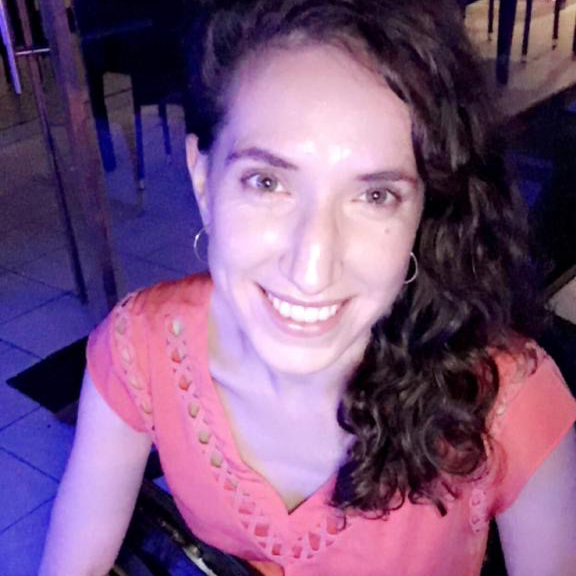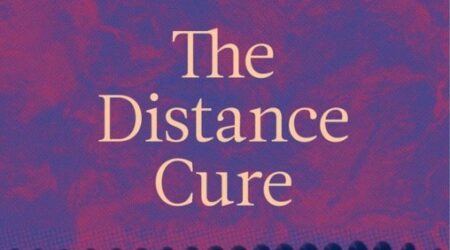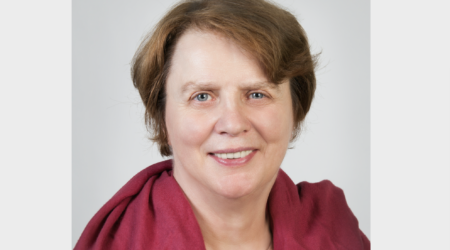In this podcast, Matrix content curator Julia Sizek interviews Juliana Friend, a PhD candidate in the UC Berkeley Department of Anthropology, whose research focuses on the intersection of technology, privacy, and culture. Her dissertation, “Don’t Click Here! Porn, Privacy, and Digital Dissidence in Senegal,” examines how digital dissidents are transforming the idea of sutura (discretion or modesty), a concept used to describe the appropriate relationship between private and public life in Senegal.
Friend’s research shows how citizenship, subjectivity, and nation are being redefined in online spaces by eHealth activists and women who work with pornographic images. Her dissertation research has been featured in The Conversation, and she was a 2020-2021 Charlotte W. Newcombe fellow.
The interview focuses on the concept of sutura and Juliana’s research on the topic in Senegal.
Listen to the interview through the link below, or on Apple Podcasts or Google Podcasts.
Podcast Transcript
[MUSIC PLAYING]
The Matrix Podcast is a production of Social Science Matrix, an interdisciplinary Research Center at the University of California Berkeley.
Julia Sizek: Hello, everyone and welcome to the Social Science Matrix Podcast. We’re here in the Matrix space, wearing our masks, and we hope that you are staying safe out there. I’m Julia Sizek and I’ll be your host for this episode. Today, we’re excited to have Juliana Friend, a PhD candidate in anthropology to discuss her dissertation, don’t click here: porn, privacy, and digital dissidence in Senegal, which examines how digital dissidents are transforming the idea of sutura, which is often translated as discretion or modesty.
Her dissertation research has been featured in The Conversation, and she was a 2020-2021 Charlotte W. Newcombe fellow. Welcome, Juliana.
Juliana Friend: Hi, Julia. Thanks so much for having me.
Sizek: So let’s get started just by talking about what the concept of sutura is. Can you just tell us a little bit about what this concept is and its history?
Friend: Right, so sutura is a culture of discretion, and it’s often invoked to both create and police a boundary between public and private life. So this can take the form of modest dress, covering the body, or the form of speech, not discussing sex with elders except in particular situations. And so to suturale someone else means to keep their secrets, to protect them from exposure, shame, or unwanted visibility.
And women are often seen as the guardians of sutura, and maintaining sutura is crucial to crafting oneself as a good Senegalese woman. It’s crucial to securing honor, moral legitimacy, national belonging, and one reason why it’s really important is that it’s kind of a social contract between members of the Senegalese community.
So for example, if a sexual assault survivor refrains from naming the perpetrator, thereby keeping intimate life out of public view, this maintains the social contract of sutura and she’s more likely to receive social and material support from her community at the time she needs it most. So by protecting a member of the National Community, she in turn is protected.
So you mentioned that it’s both part of the national identity of Senegal, but it’s also part of the religious identity of Senegal. Many people might be surprised to find out that 96% of the population in Senegal practices Islam. So what’s the history of Islam in Senegal and how is the concept of sutura embedded in this religion?
Right, so a proper answer to this question goes beyond my pay grade but to start off, yeah, so Islam has been present in Senegal since the 11th century. Today, it is predominantly Sufi and broken into four brotherhoods. And the influence of these Sufi brotherhoods really expanded with French colonization, and some Sufi leaders were anchors of anti-colonial resistance. Others were actually integrated in colonial administration, which was rare for French colonial governance, and they mediated between the French and Senegalese populations.
And it’s interesting that, kind of on an international level, Senegal is known as having, quote, unquote, “a good Islam”, a moderate Islam. One that secures tolerance and is a bulwark against, quote, “political” Islam often conflated with extremism. And so this has really shaped the position of Senegal in the global order.
In terms of sutura, sutura is a hybrid between pre-Islamic practices, Muslim practices of modesty, and the history of colonization. So it existed before Islam’s influence and was very crucial to marking caste distinctions. So for example, the distinction between the griot or gewel who could say indiscreet things that higher class nobles who employed them were bound by sutura not to say.
And then this hybridized with Muslim practices of modesty. And then French colonization really shaped the gendered direction that sutura took. So French colonizers would invoke sutura to control women’s sexuality as a technique of governing their subjects more broadly. And then this continued in new forms after independence, when women’s morality became part of a nation building project. And so loose women appeared to compromise the ideal of a flourishing independent nation.
Sizek: I mean, it seems like sutura really embodies the incredible history of Senegal as well as the complex interactions between all of these both global and local forces. And one of, I guess one of the things that this makes me think about is how this sutura is really transforming or changing over time. And so in this post independence period, can you just tell us a little bit about how sutura has changed?
Friend: So one lens I use in my research to examine the transformations of sutura is the lens of new media, especially social media platforms like Facebook and more recently, TikTok, but situating those forms in a longer history of communication, and in particular, the history of how communication and the body intertwine.
So one example, and here I’m drawing on the amazing work of Ivy Mills, who is also here at Berkeley. So to rewind a bit to the height of the Wolof caste system, I mentioned this figure of the gewel or the griot who was employed by a noble family to tell family histories, to take a key role in ceremonies, and was known as brash, outspoken, lacking sutura.
So even though this figure was crucial to the social order, they were also marginalized. And interesting for the historical throughline is that because sutura is a very gendered value and because they were seen as transgressing sutura, they were positioned as not quite men. So in this case a, kind of, queer figure.
And so we see this remediated in different ways as the media landscape has changed. And especially with new media, often depicted as a promiscuous media form because it allows multiple intimacies, multiple connections at once, but this kind of anxiety about promiscuous media is displaced onto marginalized populations, like women, queers.
And so various anxieties are projected onto the figure of the gay man as always already too public, always bringing sexuality, intimacy into the public space just by virtue of their existence. So sutura can in its more unsettling forms be invoked to police who can take part in public life.
Sizek: So can you tell us a little bit more about these new social media forms. What would an example be of when someone is inappropriately, I guess, going against this idea of discretion in social media posting? What would that look like?
Right, so I mean, the quintessential example that definitely is not specific to Senegal is teen social media usage the source of much consternation. And so in my field work with sex education programs, there were these new modules coming out called sutura and Facebook. And again, the burden being placed on young women to keep in mind that Facebook, while it might seem friendly, is actually public space and therefore be on guard.
And one group of digital dissidents that I’m particularly interested in, and by digital dissident I mean somebody who uses media in anti-sutura indiscreet ways, are porn performers. And pornography is seen as the antithesis of sutura because it takes intimacy and makes it hyper-visible, hyper-public, so much so that a lot of Senegalese people I talked to refuted the idea that Senegalese porn existed in the first place.
And while rare, I was able to speak with some porn performers, and it was really striking that while sutura was invoked to marginalize them and place them outside the Senegalese moral community, they didn’t just kind of reject it wholesale, but they changed it.
And they didn’t view it as much as this boundary between public and private life. They lived sutura as an action, something that you do and something that you do with your body. So when performing in videos, most mask their faces so that their identities are concealed, and so that their labor can produce money for their family, but without their family knowing where the money comes from.
And so I think of this as a discrete exposure or enacting sutura in the very moment of exposing oneself. And I think this has been really thought provoking to me because it suggests that sutura doesn’t need to be predicated on a public, private boundary. So could we think of sutura or privacy more broadly outside this idea of two separate spheres, and its digital dissidents who often provide guidelines or inspiration toward that end?
Sizek: Well, that’s really fascinating, and especially to think about the emergence or continued growth or just the existence of a pornography industry and a place where most of your interlocutors outside of that industry would deny that it might exist at all. And while you were doing that field work, how did you get in touch with these people who were producing pornography?
Friend: Yeah, that was quite the challenge. And as I went about it, I learned it actually, like, through seeking to identify people in the industry, I shifted my research focus from pornography to sutura itself. What force does sutura exist in– what force does it exert in the world?
So it became my research object, but also an ethical precondition for field work at all because this was such a sensitive topic, because people were so marginalized, and because, as a White woman, my positionality is intertwined with colonial histories that controlled people by projecting hypersexualization.
So I can share one anecdote that is a source of embarrassment, but I’ve put it in the dissertation. That I was put in touch through networks of sex workers. So actually, that’s the short answer of how I met people, through broader sex work networks. I was put in touch with somebody who I was told might have connections in this domain.
And so I went to meet her in a cafe and then I think she was kind of feeling me out. She thought, OK, this person seems legit. So we had a second round of discussion in her home, and she was surprisingly open, like, of course, yeah, we can work together. This shouldn’t be a problem. No big deal. I was like, Wow, OK, this isn’t going to be as hard as I thought it would be.
And then just as I was leaving, exiting the gate, she says to me, so how much money do you have for this film? And I was like, Oh my god, she thinks I’m producing porn and not studying it because I had kept saying, when I was explaining my objective, I want to have a conversation with people about porn, its advantages, disadvantages, what it’s like, et cetera. And I didn’t know that a Wolof word for conversation can sometimes be a euphemism for engaging the services of a sex worker.
So this was a wake up call. And then when I clarified and said, Oh, no, no, no, I meant conversation, just talking and nothing more, she was like, that’s going to be difficult because Senegal is a country of sutura. So making a film which would be more lucrative was easier than trying to study it on a anthropology scholarship stipend. So that was a big wake up call, and she became my guide for how to research this topic guided by sutura.
Sizek: Well, that’s really fascinating. And in your research, you’ve also found that sutura doesn’t only show up in the context of sex work or in the context of health care, but rather that it’s in contemporary news. So in the spring of 2021 Senegal, which normally is not a country that’s in the news a lot, made headlines when Adji Sarr, who is a young woman, accused the opposition leader Ousmane Sonko publicly of rape. She was seen as many as violating the concept of sutura by accusing him in such a public venue. Can you tell us a little bit more about what was going on in this case and how it relates to your research?
Friend: Yes. So Adji Sarr is a young woman who worked at a massage parlor. And as you said, she accused the head of a key opposition party, PASTEF, of rape. And then she, in an even more scandalous turn of events, she gave a televised interview about it.
And when Sonko was arrested, there were big protests in the streets, and young people were killed by police during these protests, which launched a social media campaign “Free Senegal”, and these events brought rare international news coverage to Senegal, because again, Senegal is known as this country of peace, and sadly, that often means that it’s an African country that doesn’t get much media attention.
But this case is unique in two other ways. It first broke with the pattern of how sexual assault is usually treated in Senegal. So on the one hand, Senegal has a really lively history of women’s activism against sexual violence, which led to really important legislation criminalizing rape last year.
However, to follow the guidelines of sutura and maintain its social contract, as I mentioned, women do not denounce men publicly by name. And so Adji Sarr broke this pattern. And not only that, she used media forms to do it. And so the fact– and also the fact that she worked in a massage parlor conflated with sex work added to this depiction of her with this trope of the media whore seeking attention. But so she really broke with the pattern of how sexual assault is treated.
The second thing that really struck me and my coauthor Beth Packer, with whom I wrote an article in The Conversation, is the connections it brings out between sutura, democracy, and anti-imperialism, because just as Adji Sarr is a difficult figure to defend, Sonko is a difficult figure to oppose.
For many, he is kind of the anti-imperialist answer to the current Senegalese President Macky Sall. He has opposed the CFA currency that is pegged to the euro. He has criticized President Sall’s economic relationships with European companies.
And so Sonko’s arrest brought long simmering anti-colonial sentiment to a head, and most visibly protesters burned French-owned businesses that symbolized a government’s willingness to prioritize European economic relationships over the well-being of its people. And so Sonko called his arrest an anti-democratic conspiracy, and many of his supporters did too, also citing a pattern that two other rivals of the president had previously been imprisoned.
And so bringing it back to Adji Sarr, and gender keeps returning, Sarr didn’t just jeopardize sutura. She jeopardized democracy and the nation itself. And so to betray sutura is a betrayal of the nation. And so what I think one of the many things that this episode shows is that sutura continues to be a way that people code and understand national/international politics. And it continues to be an idiom for critiquing Neo-imperialism, and this critique emerges through debates about women’s bodies and sexuality.
Sizek: Well, that’s incredible. I mean, just the way that I think this event shows how much sutura is embedded in Senegalese identity as well as in contemporary anti-imperialist politics in Senegal. And so can you just tell us a little bit more about this push and pull between Macky Sall and then Ousmane Sonko of this imperialism, anti-imperialism friendliness with former French colonizers versus opposition to French colonizers. How does that situation play out in Senegal today and in contemporary Senegalese politics?
Friend: Right, so this is a complicated issue that I am still learning about, and this Adji Sarr episode was a first window for me into these broader issues. So I’m definitely still just finding my way and learning, myself. But I guess a place to start is that there is a movement that emerged recently called France degage, which is a broad call for separation from Senegal’s former colonizer, economically, politically, and has had periodic episodes of protest, especially by a lot of young people. And so Sonko is very popular with the France degage movement.
And Senegal is quite unique in that it’s an African country that has never had a coup. And so it’s often cited as having these Democratic transitions of power. But people in Senegal themselves often say, well, it’s not quite that simple. And a previous president was trying to get an unconstitutional third term, and there are speculations that Macky Sall might be wanting to do the same thing. So that might be why he is having Sonko imprisoned.
And so, yeah, these two figures have come to represent different ideas of what Senegal should be and what true independence success modernity looks like.
Sizek: Wow. And just to return to one of the earlier points, and I think one of the earlier focuses of your research, you’ve worked a lot with youth in Senegal. And so what do, from your experience in your research, what are the youth thinking about the future of Senegal, the future of sutura, the future of national identity in the country?
Friend: Yeah, I mean, so I’ve done some work with young sex educators, peer educators in a region called kolda in the South of Senegal, which is known for its higher rates of sexual violence. And especially in these youth centers called Centres Conseils Ados or CCAs, young women have been fostered as key ambassadors to a future where women take a leading role in a lot of aspects of life, including the political aspect, including leading the way in terms of health.
And so there’s always a fine line of negotiating sutura. And so there are young women who become radio personalities and are all about speaking out against injustice, but always with a sense of sutura and a sense of the really high moral weight that women’s conduct plays in public life.
And so as often happens, young women are taken as the index of progress and modernity, part of one reason why there’s so much international aid and attention placed on programs for young women. But the young women I’ve worked with in Senegal really take up that mantle and make it their own, and envision a country that continues to be guided by sutura. But they don’t view sutura as antithetical to a just system of gender equality, you could say.
Sizek: So how did you get started doing your research in Senegal, and what made you focus on these questions of gender and discretion?
Friend: So I have to give a major shout out to my very first French teacher, Dauda Kamara, who took me and a bunch of students to Senegal when I was in high school. And so my involvement with Senegal goes back to 2005. And my first relationships with friends there set off everything in motion.
And in terms of sutura, when I returned to Senegal later in a research project, I was struck by people who told me that as an American woman, over there, you don’t have sutura. And I was like, what is this concept of sutura? And it became this way of distinguishing my world from theirs. And so it, early on, presented itself as a key way of thinking about national identity and difference.
Sizek: Wow. Well, this has been so fascinating. Thank you so much for coming onto our podcast. It’s been really interesting to learn so much about sutura and contemporary politics in Senegal.
Friend: Thank you so much, Julia. I’ve really enjoyed talking with you.
Woman’s Voice: Thank you for listening. To learn more about Social Science Matrix, please visit matrix.berkeley.edu.
[MUSIC PLAYING]



